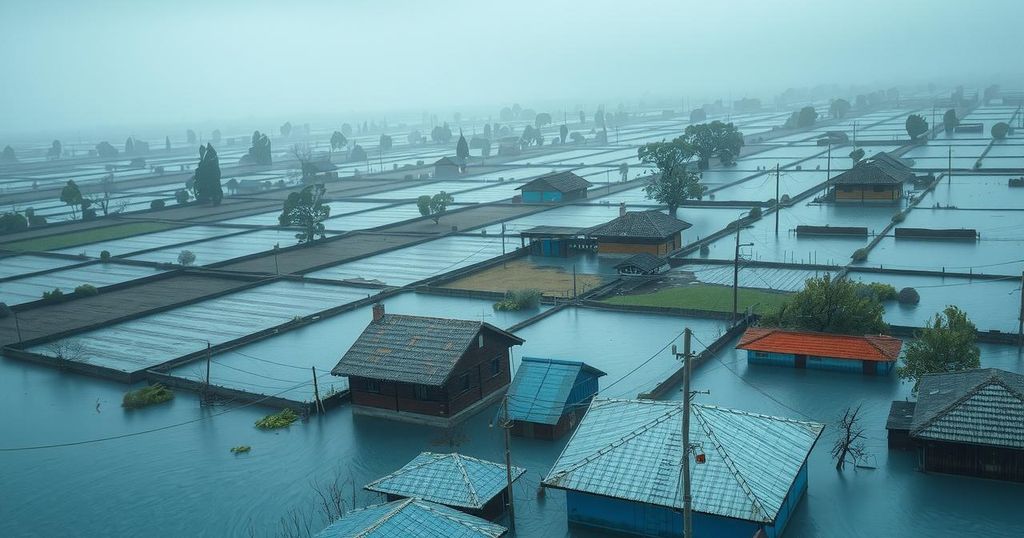In Bahia Blanca, Argentina, relentless rains have resulted in flooding that kills ten individuals, displaces over a thousand, and leads to hospital evacuations. The government is mobilizing significant resources for relief and recovery efforts in response to the unprecedented severe weather conditions affecting the city.
The Argentine port city of Bahia Blanca has experienced severe flooding resulting in the tragic loss of ten lives and the evacuation of over a thousand residents due to incessant rainfall. This deluge, characterized by eight consecutive hours of rain, inundated homes, hospitals, and destroyed vital infrastructure, leading to power outages as officials responded to the crisis.
The city, with a population of approximately 350,000, witnessed unprecedented rainfall, accumulating over 400 millimeters (15 inches) in just a few hours—the typical annual precipitation. Security Minister Javier Alonso emphasized the extraordinary nature of this event, stating it was nearly three times greater than the storm in 1930, which recorded 175 millimeters.
With the emergency declared, the national government sanctioned 10 billion pesos (around 9.2 million dollars) for relief efforts. The provincial authorities initiated a multifaceted response, deploying helicopters, boats, ambulances, and vehicles laden with food, water, and essential supplies to assist those affected by the flooding.
The flooding severely impacted the Jose Penna hospital, necessitating the evacuation of patients, including infants from the neonatal unit. Local resident Flavia Viera Romero recounted her harrowing experience of floodwaters rising dramatically into her home. Rescue operations are ongoing, and Bahia Blanca remains under alert for the possibility of further storms, with the meteorological service monitoring conditions closely.
The floods in Bahia Blanca underscore the severe impact of climate change and extreme weather patterns, demonstrated through the unprecedented rainfall and the resulting crisis. The situation has prompted government actions to provide immediate assistance and indicates a need for enhanced disaster preparedness to mitigate future calamities.
Original Source: www.france24.com




